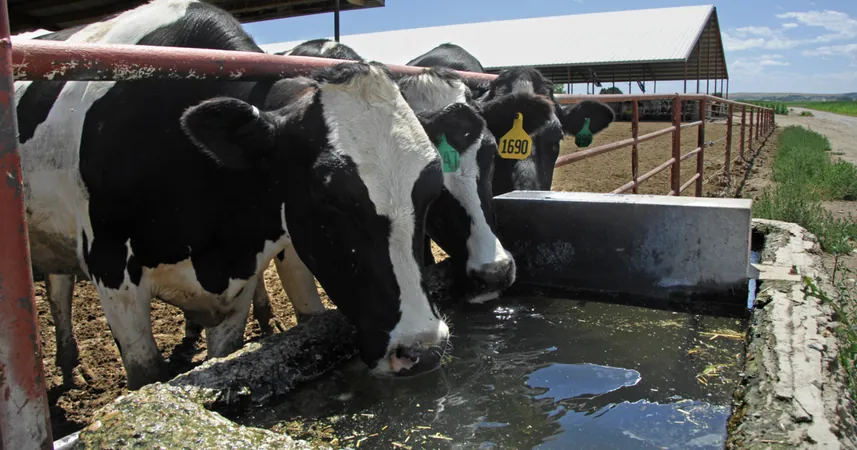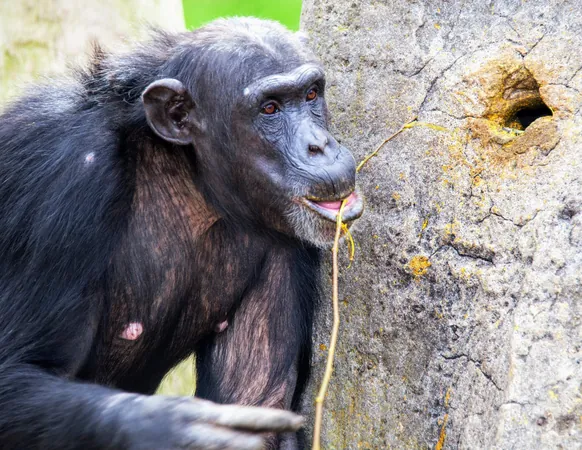
USDA Mandates Testing of Dairy Farms to Combat H5N1 Bird Flu Outbreak
2024-12-09
Author: Jacob
USDA's Initiative to Combat H5N1
In a significant move to mitigate the spread of bird flu, the U.S. Department of Agriculture (USDA) has announced that all dairy farms across the nation will be required to provide samples of unpasteurized milk upon request, starting December 16. This initiative aims to enhance understanding and management of the highly pathogenic avian influenza, commonly known as H5N1, which has recently begun affecting dairy herds.
Escalating Concerns Over H5N1
The concern over H5N1 escalated after the virus was detected in U.S. domestic poultry, prompting public health officials to track its spread meticulously. Alarmingly, 2023 has already seen nearly 60 human cases of the virus, primarily among farmworkers. While the current evidence indicates that the virus poses a low risk to the general public and does not spread between humans, the USDA's action reflects bolstered health precautions.
State Specific Testing Measures
The mandatory testing will first take place in six states: California, Colorado, Michigan, Mississippi, Oregon, and Pennsylvania, as part of a robust national approach. Agriculture Secretary Tom Vilsack emphasized the importance of this program, stating it will instill confidence among dairy farmers and workers regarding the safety of their livestock, and is crucial to controlling the disease's expansion.
Unpasteurized Milk Health Risks
In addition to the new testing requirements, it's worth noting that the U.S. Food and Drug Administration (FDA) routinely ensures that pasteurized milk available in stores is safe for consumption. However, unpasteurized milk remains a health risk due to the absence of processes that eliminate harmful pathogens. The public has been consistently warned against its consumption.
Strategic Food Safety Measures
Health and Human Services Secretary Xavier Becerra added that this strategic testing is vital in reinforcing the health and safety of food supplies nationwide. The USDA had previously introduced a voluntary bulk tank testing initiative over the summer to facilitate the movement of cattle across state lines, and the department continues to study the safety of bird flu in dairy cattle entering meat production.
Impact on the Dairy Industry
The H5N1 outbreak has significantly impacted the dairy industry, with 720 herds across 15 states affected this year, but California is particularly hard hit, accounting for the majority of 273 diagnosed herds. This state is also leading in human cases, with 32 reported infections. Colorado and Washington have reported 10 and 11 cases, respectively, while Michigan, Missouri, Oregon, and Texas have had sporadic cases.
Compliance with Testing Requirements
Under the new USDA order, all parties involved in dairy farming—be it bulk milk transporters, transfer stations, or processing facilities—must comply with these testing requirements and provide epidemiological information should any farms test positive for the virus. Private labs and state veterinarians are also obligated to report positive samples connected to this National Milk Testing Strategy.
Looking Ahead in Dairy Farming
As the USDA gears up for widespread implementation of these testing measures, the agricultural community watches closely, recognizing the ongoing need for vigilance amid this public health concern. Stay tuned to see how these developments unfold and what they mean for the future of dairy farming in America!









 Brasil (PT)
Brasil (PT)
 Canada (EN)
Canada (EN)
 Chile (ES)
Chile (ES)
 España (ES)
España (ES)
 France (FR)
France (FR)
 Hong Kong (EN)
Hong Kong (EN)
 Italia (IT)
Italia (IT)
 日本 (JA)
日本 (JA)
 Magyarország (HU)
Magyarország (HU)
 Norge (NO)
Norge (NO)
 Polska (PL)
Polska (PL)
 Schweiz (DE)
Schweiz (DE)
 Singapore (EN)
Singapore (EN)
 Sverige (SV)
Sverige (SV)
 Suomi (FI)
Suomi (FI)
 Türkiye (TR)
Türkiye (TR)